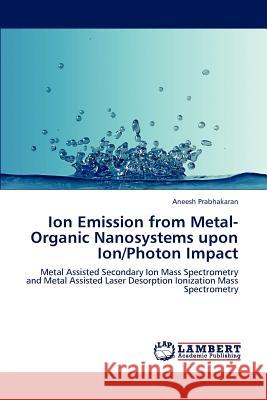Ion Emission from Metal-Organic Nanosystems upon Ion/Photon Impact » książka
Ion Emission from Metal-Organic Nanosystems upon Ion/Photon Impact
ISBN-13: 9783659309298 / Angielski / Miękka / 2012 / 188 str.
Ion Emission from Metal-Organic Nanosystems upon Ion/Photon Impact
ISBN-13: 9783659309298 / Angielski / Miękka / 2012 / 188 str.
(netto: 289,68 VAT: 5%)
Najniższa cena z 30 dni: 304,16
ok. 10-14 dni roboczych
Bez gwarancji dostawy przed świętami
Darmowa dostawa!
Secondary ion mass spectrometry (SIMS), in which energetic ions are implemented to interrogate the surface, is an efficient technique for the molecular analysis and imaging of solid surfaces. Improving the yield of secondary ions remains a challenge in SIMS. Metal-Assisted SIMS (MetA SIMS), where a small quantity of metal (Au, Ag, Pt...) is condensed on the sample surface, was one among the proposed ways to increase the yield using keV monatomic projectiles. In this thesis, the yield enhancements obtained upon 12 keV Ga+, 30 keV Bin+ (n =1,3,5) and 6MeV O3+ bombardment on metal deposited organic materials are investigated. Following from the studies in Metal Assisted Secondary Ion Mass Spectrometry (MetA SIMS), gold nanoparticles condensed on the surface of organic materials were used as an alternative to the Matrix-Assisted Laser Desorption Ionization (MALDI). The results suggest that Metal-Assisted LDI (MetA LDI) provides an interesting alternative to MALDI for the surface analysis and, potentially, imaging of certain classes of materials, when a minimal perturbation of the surface structure is desired.
Secondary ion mass spectrometry (SIMS), in which energetic ions are implemented to interrogate the surface, is an efficient technique for the molecular analysis and imaging of solid surfaces. Improving the yield of secondary ions remains a challenge in SIMS. Metal-Assisted SIMS (MetA SIMS), where a small quantity of metal (Au, Ag, Pt...) is condensed on the sample surface, was one among the proposed ways to increase the yield using keV monatomic projectiles. In this thesis, the yield enhancements obtained upon 12 keV Ga+, 30 keV Bin+ (n =1,3,5) and 6MeV O3+ bombardment on metal deposited organic materials are investigated. Following from the studies in Metal Assisted Secondary Ion Mass Spectrometry (MetA SIMS), gold nanoparticles condensed on the surface of organic materials were used as an alternative to the Matrix-Assisted Laser Desorption Ionization (MALDI). The results suggest that Metal-Assisted LDI (MetA LDI) provides an interesting alternative to MALDI for the surface analysis and, potentially, imaging of certain classes of materials, when a minimal perturbation of the surface structure is desired.











